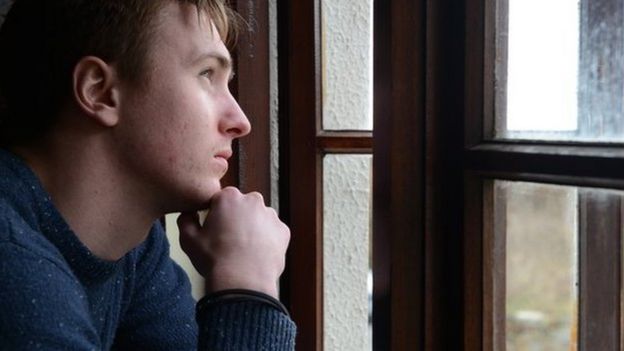
Inadequate and underfunded mental health care in England is leading to thousands of "tragic and unnecessary deaths" a review has found.
The report - by a taskforce set up by NHS England - said around three-quarters of people with mental health problems received no help at all.
It said more needs to be done to tackle rising suicide rates.
Ministers agreed with the findings, committing a £1bn extra a year by 2020 to treat a million more people.
This is to come out of the £8.4bn the government has promised to the health service during this Parliament and comes on top of extra money already announced for children's services.
Prime Minister David Cameron said the plan would help put "mental and physical healthcare on an equal footing".
Mental health
1 in 4
people experience problems each year
75%
receive no help
- £105bn cost to economy
- £9.2bn spent by NHS a year
- 15-20 years shorter life expectancy for those with severe problems
He said he wanted to see all those that were struggling to "get the help and support" they needed.
"For too long there hasn't been enough focus on mental health care in this country," added Mr Cameron.
Analysis: Will the plan work?
Mental health care is sometimes called the Cinderella service of the NHS. Over the years it has been neglected, marginalised and under-funded. The taskforce's report acknowledges this.
So will the recommendations have the necessary impact? Ministers and NHS bosses have all said they're fully committed to it.
But similar things were said in 2011 when the coalition launched its mental health strategy. And, as the BBC reported on Sunday, that didn't stop investment being cut.
With money so tight in the NHS, the nagging fear is that despite the promises being made history could still repeat itself.
Currently £9.2bn a year is spent on the condition - less than a tenth of the NHS budget - despite one in four people experiencing a mental health problem each year.
The result is that an estimated three-quarters of people go without any help, with the taskforce's report acknowledging that services were so bad that lives have been "put on hold or ruined" and "thousands of tragic and unnecessary deaths" have been caused.
NHS England believes the strategy will help to ensure that another one million people receive support - whereas at the moment fewer than two million people do so.

It said the investment promised will help pay for:
- An extra 600,000 people to get access to talking therapies for conditions such as anxiety, depression and stress
- A screening programme to ensure more people with severe mental health problems get help for physical health conditions, such as heart disease and diabetes
- Mental health teams to be put into all A&E units - currently only a minority have them
- More support for pregnant women and new mothers - around one in five suffers from mental health problems
- Nationwide access to community crisis care teams - only half the country has access to them
It said that together these measures would help reduce the demand on specialist inpatient wards in hospitals and therefore help tackle the much-criticised practice of sending people long distances for treatment.
Paul Farmer, the chief executive of the mental health charity Mind, who led the taskforce, said the strategy should act as a "landmark moment" for mental health care, which was currently "very patchy".
"We are saying to the NHS, to government, to industry, to local leaders and to the public that mental health must be a priority for everyone," he said.
While the extra funding was crucial, he added that some stigma around mental illness "still prevails, right the way inside the health service, as it does in society", and this needed to change.
NHS England boss Simon Stevens said he was "fully committed" to implementing the recommendations.
But Royal College of Psychiatrists president Prof Sir Simon Wessely warned it would take "sustained work" to end the "decades of inequality".
And Prof Sheila Hollins, of the British Medical Association, pointed out such promises had been made before.
"Those suffering from mental illness need to see these pledges fulfilled."

source:BBC NEWS